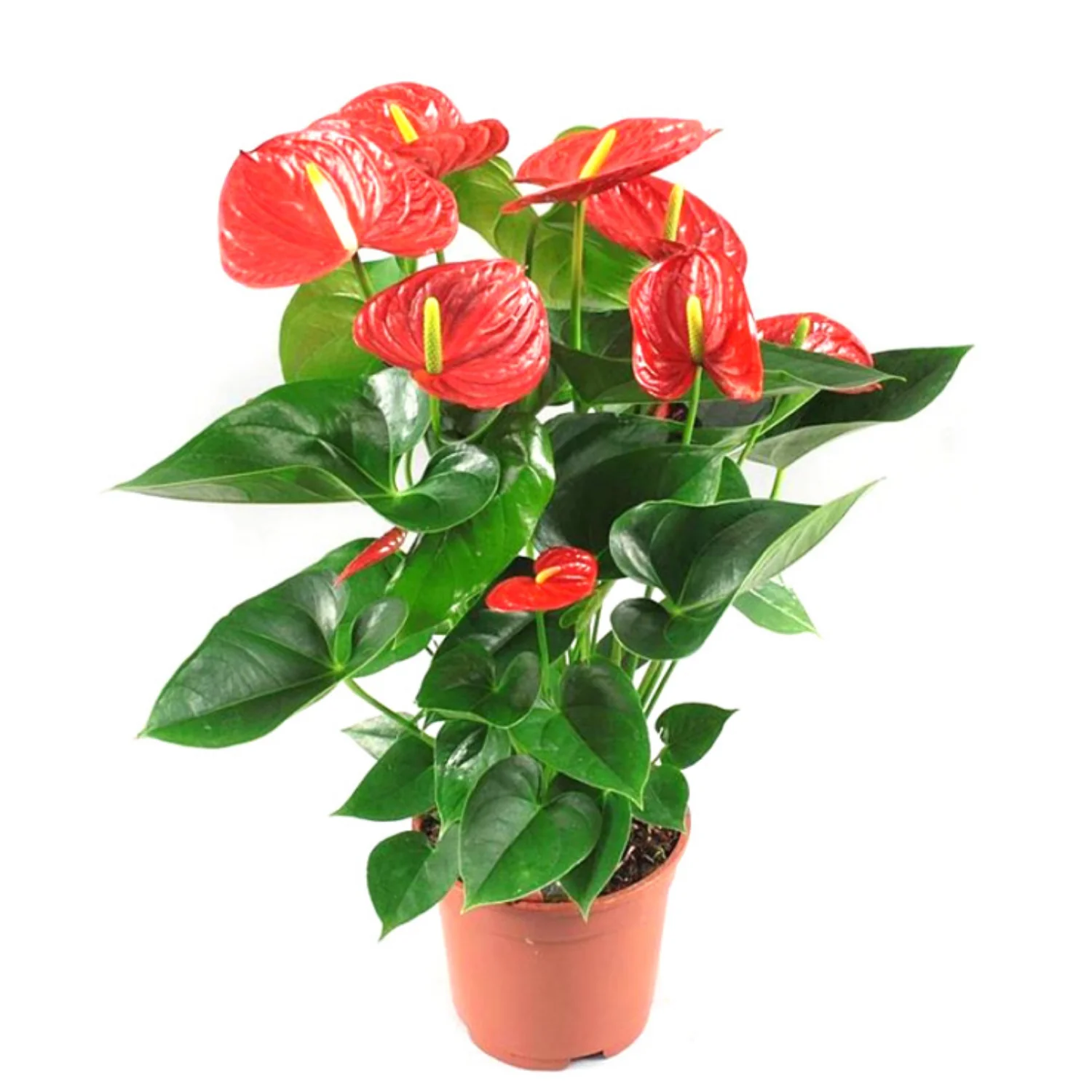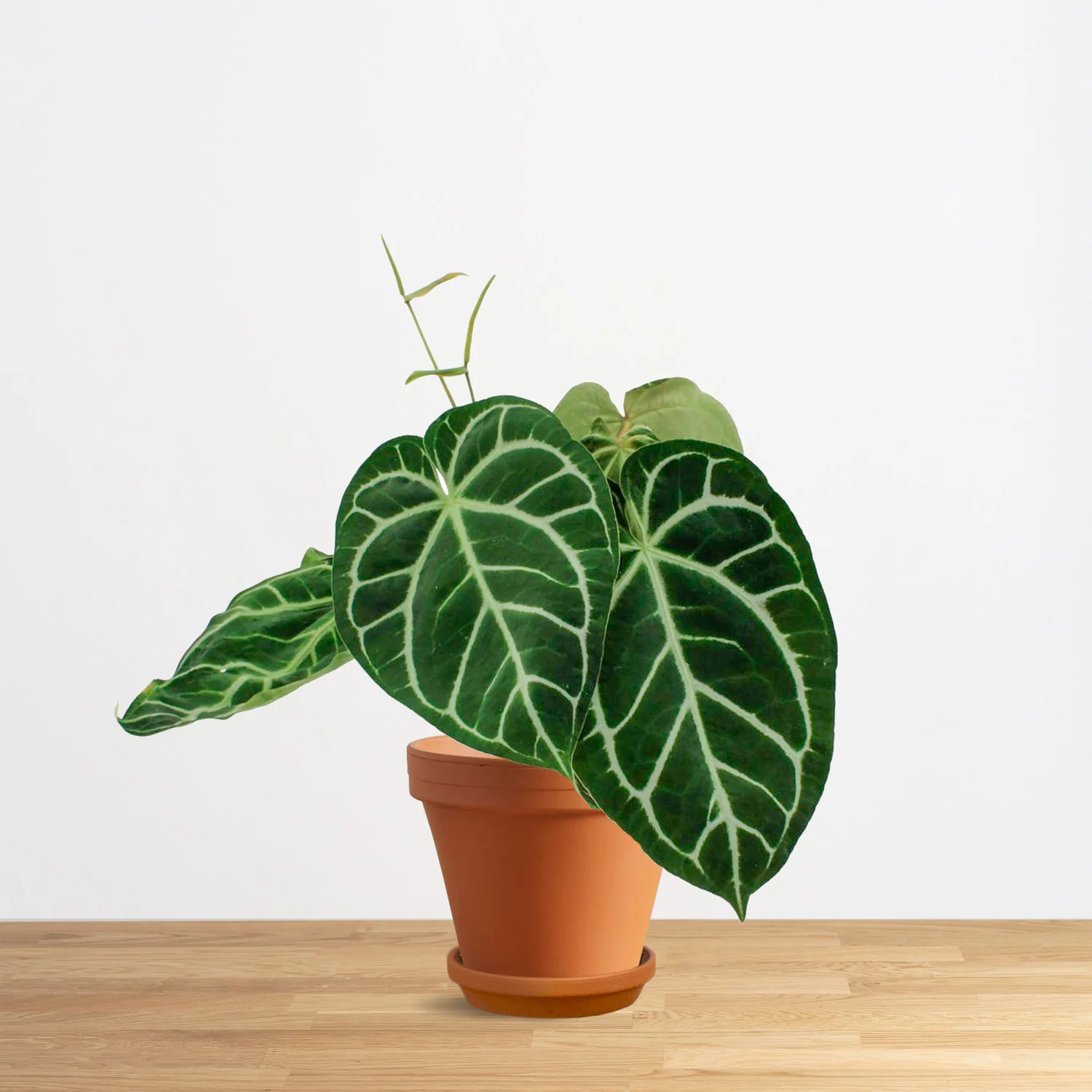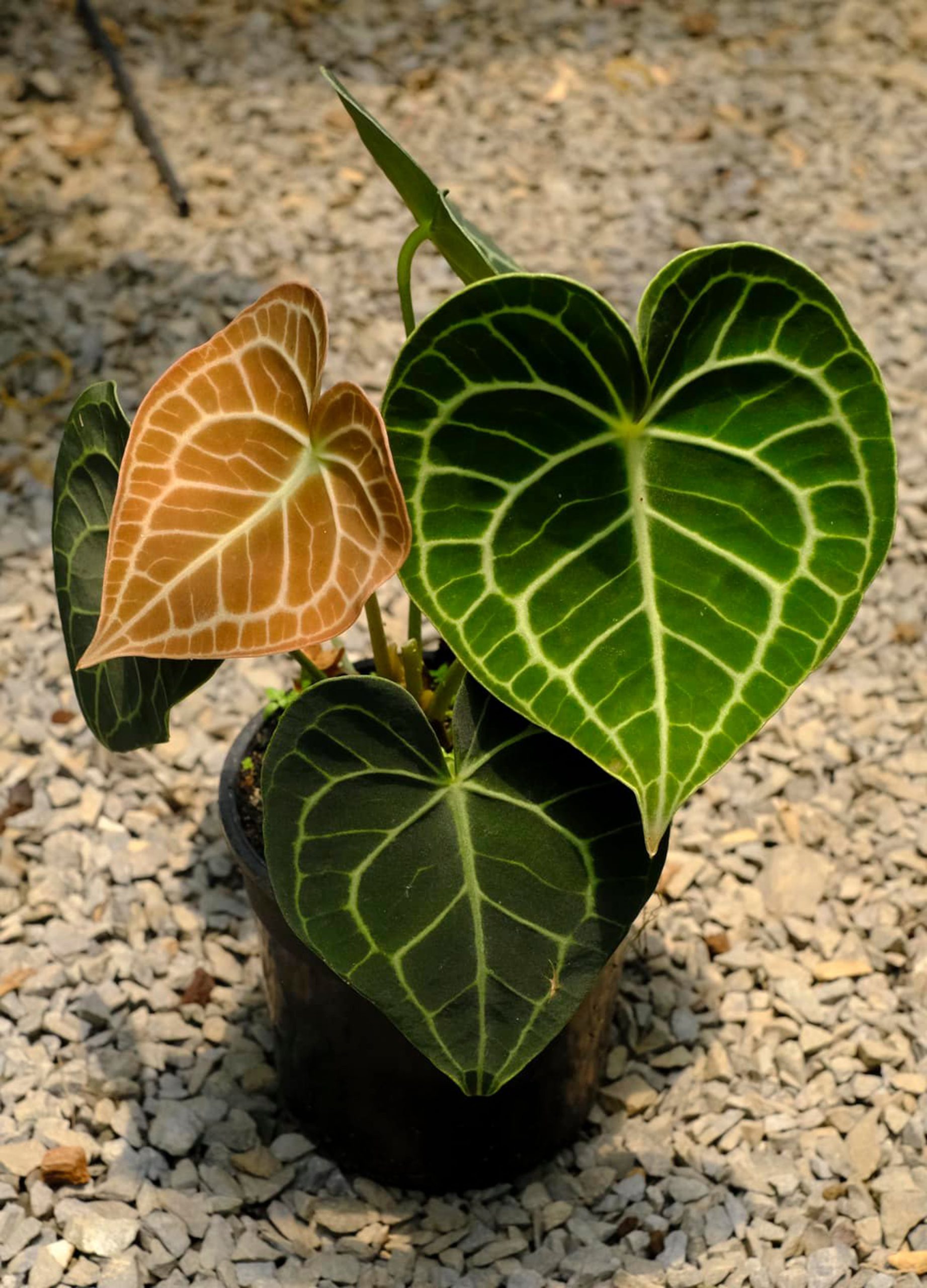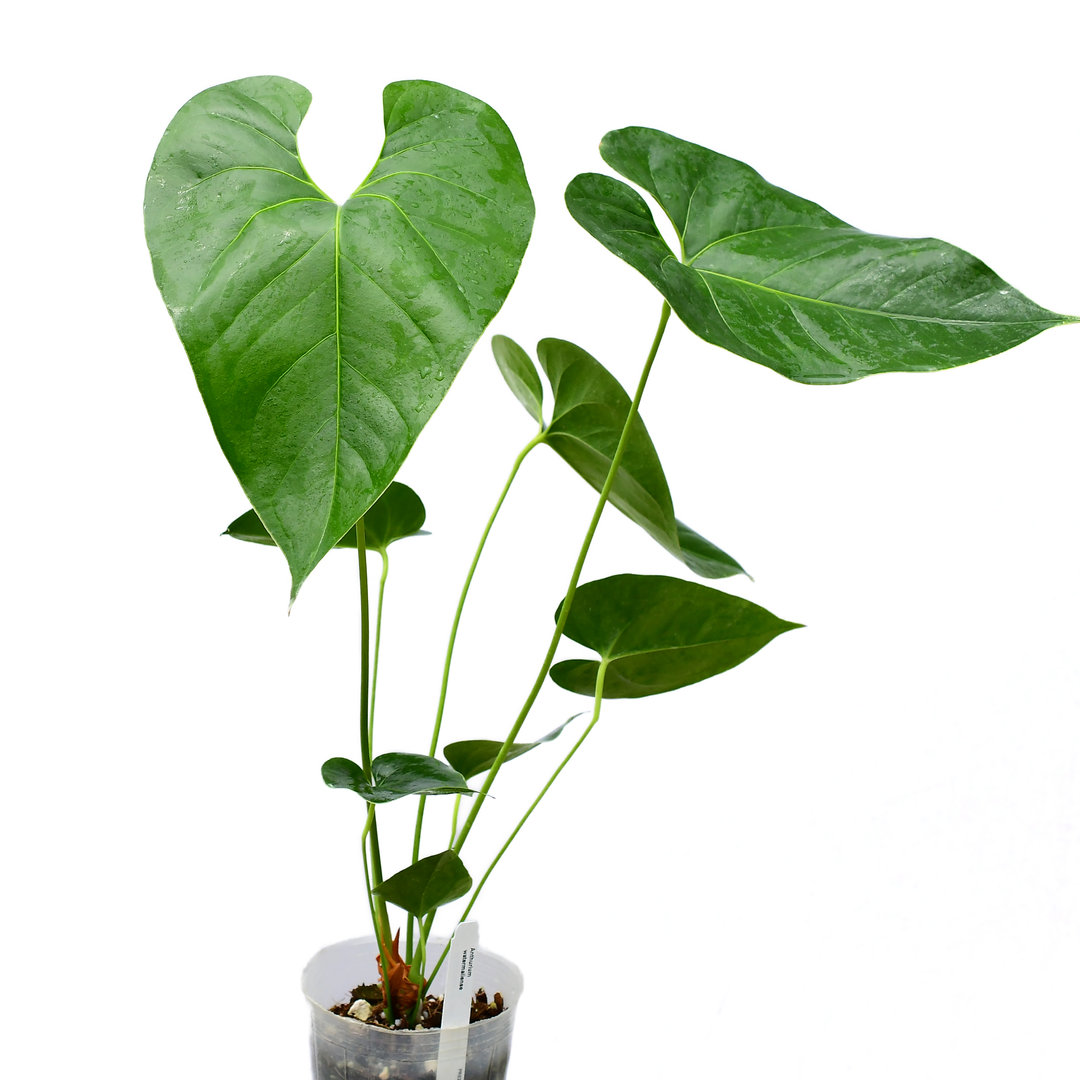Anthurium is a popular tropical plant prized for its lush, glossy foliage and striking flowers. Often referred to as flamingo flowers or painter’s palette, anthurium features vibrant blooms in shades of red, pink, and white that seem to leap off deep green, heart-shaped leaves.
Anthurium makes an excellent houseplant, adding a touch of the tropics to any space. They also work beautifully in cut flower arrangements and floral displays. Here is an in-depth guide covering everything you need to know about growing and caring for these exotic beauties.
Selecting the Right Anthurium Variety
When it comes to anthurium, there are over 1,000 different species and varieties to choose from. The most common types grown as houseplants include:
Anthurium andraeanum
This evergreen perennial is the variety most commonly associated with the term “anthurium.” It produces dark green, heart-shaped leaves up to 12 inches long atop tall stems. The real showstoppers are the glossy flowers which bloom almost year-round in vibrant shades like bright red, pink, white, purple, orange, and green.

Anthurium crystallinum
Sometimes called the “velvet cardboard anthurium,” this variety is grown more for its stunning foliage than its small white blooms. The leaves have an almost leather-like appearance in a rich dark green color with attractive white veining. The leaves can grow absolutely enormous under the right conditions, up to 3 feet long and 2 feet wide!

Anthurium clarinervium
This striking anthurium has foliage unlike any other. The leaves are heart-shaped with a dark green color and prominent white veining that almost makes them look like they are glowing. While the small greenish-white flowers are less impressive than other types, the gorgeous leaves make up for it.
“Explore the Exceptional 2023 Anthurium Collection: A Curated Selection of the Rarest and Most Unique Varieties Available.”

Anthurium watermaliense
Here is another anthurium prized for spectacular leaves rather than flowers. This variety has elongated heart-shaped leaves in a rich green color with ruffled edges. Tiny greenish or white blooms may appear under ideal conditions but they are not the main attraction. The deeply lobed foliage is what makes this type stand out.

Caring for Anthurium Indoors
Anthurium thrive indoors under the right conditions. Here is a detailed overview of their care requirements:
Light
Anthurium prefer bright, indirect light similar to what they would receive in a rainforest understory. East or west-facing windows are ideal. Direct southern exposure may be too intense resulting in leaf burn. Low light will lead to reduced flowering.
Water
Establish a regular watering routine, allowing the soil to dry out slightly between waterings. Too much moisture can lead to root rot. Anthurium like mildly moist soil. As a tropical plant, humidity is also important. Place your anthurium pot on a pebble tray or use a humidifier to keep levels between 60-90%.
Temperature
Daytime temperatures of 70-90°F are optimal with nighttime temps around 60-70°F. Keep away from cold drafts from windows or doors. Temperatures below 50°F can damage leaves and budding flowers.
Fertilizer
Feed with a balanced houseplant fertilizer diluted to half strength every 2-4 weeks during active growth periods (spring through summer). Reduce feeding frequency in fall and winter.
Potting Mix
Anthurium thrive in a light, quick-draining soil. Use a quality potting mix for tropical plants amended with perlite, orchid bark, or pumice to enhance drainage. They prefer slightly acidic soil with a pH between 6.0-6.5.
Pruning & Grooming
Remove dead or damaged leaves and spent flowers by cutting them off at the base of the stem. Prune leggy growth or “sucker” stems growing up from the soil to maintain an attractive form. Regular grooming improves both appearance and plant health.
Using Anthurium in the Landscape
In addition to their houseplant virtues, some anthurium varieties also make striking garden plants in frost-free regions. Popular options include:
Anthurium andraeanum
The common flamingo flower grows well in landscape plantings across zones 10-12, adding vibrant color to garden beds and borders. Provide the same bright, indirect light and mildly moist soil as when growing indoors.
Anthurium antioquiense
This compact terrestrial species reaches just 12-18 inches tall and wide. It produces lush green foliage and unusual white flowers that transform to a light lavender shade. It makes an excellent ground cover option for partial shade locations.
Anthurium hookeri
Here is another dwarf anthurium that works beautifully in outdoor containers or as a low-growing landscape accent. It gets just 8-12 inches tall. The small heart-shaped leaves are deep green in color with pretty white veining. Tiny white or purple blooms may appear in summer. It thrives in part to full shade.
Common Problems with Anthurium
When grown in suitable conditions, anthurium are generally vigorous, problem-free houseplants. But there are a few potential issues to watch for:
Poor flowering
Insufficient light, improper temperatures, or overwatering that leads to root rot can all inhibit flower production. Review care guidelines and adjust conditions as needed.
Leaf spot & blight
Bacterial or fungal diseases often arise from excess moisture. Improve drainage, allow plants to dry out between waterings, and apply appropriate treatments if severe.
Pests
Insect pests like mealybugs, spider mites, and thrips may take hold, especially on stressed plants. Isolate affected plants and use insecticidal soaps or neem oil treatments to control outbreaks.
Conclusion
With their vibrant, painter’s palette blooms and lush green foliage, anthurium offer exotic tropical flair whether grown as houseplants or planted in the landscape. By providing the right growing conditions including proper water, light, soil mix, temperatures, and humidity anthurium will generously reward you with their spectacular flowers and foliage. Take advantage of this plant’s versatility to create stunning displays indoors or out.

